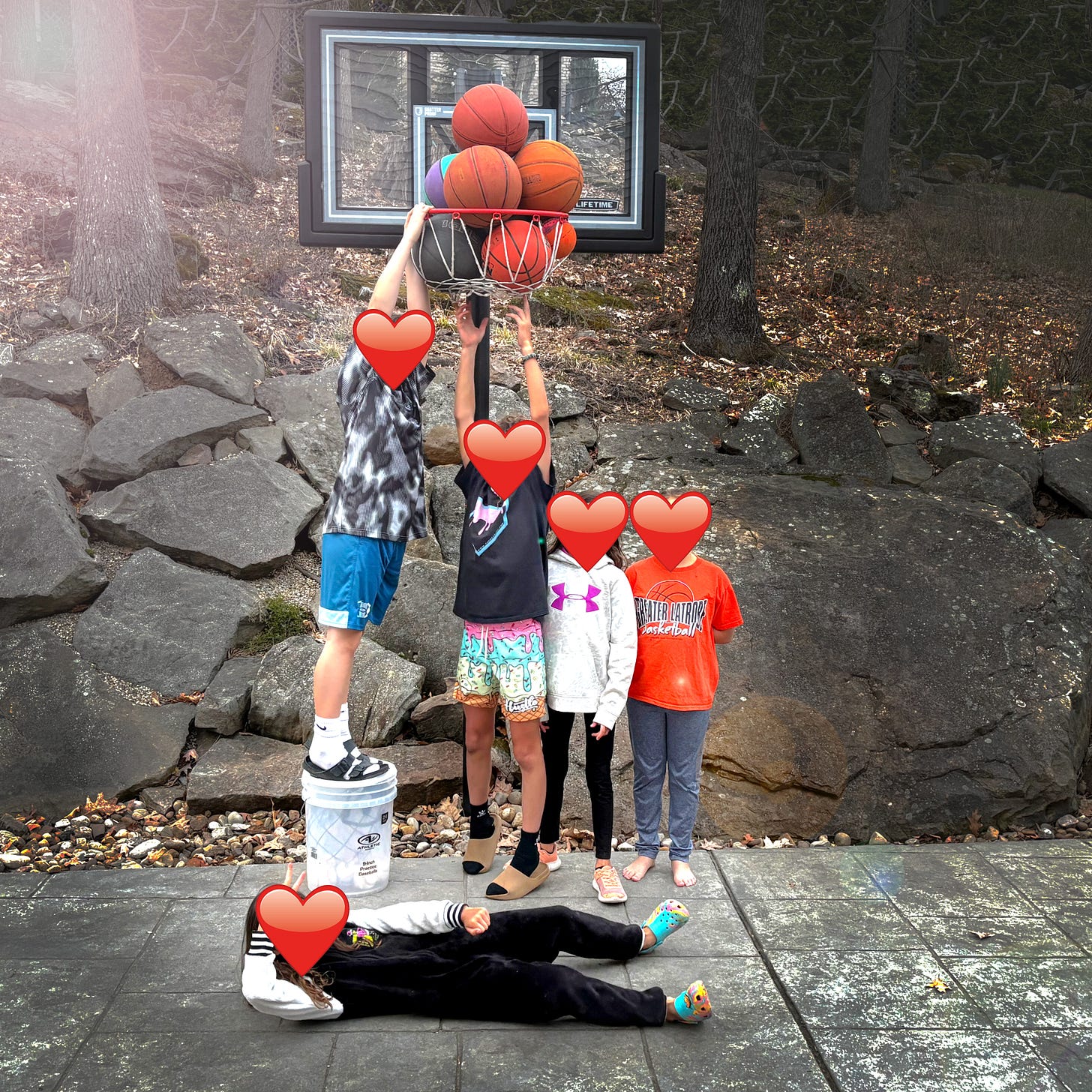Friendship used to start with a knock on the door. “Want to play?”
No parents involved. No apps required. Just…kids being kids.
We roamed the neighborhood. Knocked on doors. Picked teams. Built forts. Argued. Made up. And somewhere in all that mess—we learned how to be friends. That kind of offline, organic friendship.
Now? Kids are lonelier than ever. Researchers have tracked a steady rise in loneliness since the early 2010s—right around the time smartphones and social media took over.
They’re overscheduled. Overstimulated. And somehow…still alone, even when they’re not.
Even the minds behind our screens are offering friendship fixes—through more screens.
“The average American has fewer than three friends... and the average person has demand for meaningfully more. Over time, I think we’ll just have AI friends who are kind of there with you all the time.” — Meta CEO, Mark Zuckerberg, 2025
Let that sink in.
Tech companies offering to fix the friendship crisis…
By simulating friendship itself.
What If We’re Solving the Wrong Problem?
Zuckerberg isn’t wrong to notice the loneliness. He’s wrong about the fix.
He’s trying to solve a human connection crisis with more technology…technology that further pulls us away from real, messy, in-person connection.
Don’t get me wrong—I love what AI can do. I use it daily, especially for repetitive tasks that free up time and brainpower.
But friendship? That’s not something you automate.
It’s a deeply human process—offline, imperfect, and vital to our kids’ development. A skill they have to learn early, because their future depends on it.
So instead of asking, “How do we create digital friends?”
We should be asking, “Why are our kids struggling to make real ones in the first place?”
What’s Getting in the Way of Real Friendship?
It’s not that kids today don’t want connection. It’s that the world around them has quietly removed the natural spaces and rhythms that used to make friendship possible.
Here are three of the biggest culprits:
❌ The Disappearance of Free Play
Those long afternoons in backyards and basements? They’re fading fast. And with them, the moments where friendship naturally forms—when kids figure things out for themselves.
❌ The Pressure of Perfect Schedules
Kids move nonstop from school to structured activities, with little to no downtime. But friendship doesn’t happen on command—it needs space to breathe and unstructured time to unfold.
❌ The Silence Filled by Screens
Kids now average 7+ hours of daily screen time. Where boredom once sparked creativity and connection, screens now fill quiet moments—and reaching for a device is easier (and faster) than knocking on a friend’s door.
When those ingredients disappear, so does the invisible foundation friendship is built on.
And that’s exactly why we need to rebuild it—on purpose.
Let Them Free
We don’t need more digital replacements for what our kids are missing.
What they need is space to rediscover how real friendship begins—freely, organically, and face-to-face.
So here’s a simple, powerful place to begin:
✅ 𝗟𝗲𝘁 𝘁𝗵𝗲𝗺 𝗿𝘂𝗻 𝗳𝗿𝗲𝗲 – No agenda. No itinerary. Just a bike, a stick, and the neighborhood kids. That’s where the magic used to happen—and still can.
✅ 𝗠𝗮𝗸𝗲 𝗿𝗲𝗮𝗹 𝗵𝗮𝗻𝗴𝗼𝘂𝘁𝘀 𝗲𝗮𝘀𝘆 – Sometimes that means saying yes to mess, yes to noise, or yes to spontaneous sleepovers. Every “yes” becomes a seed for something lasting.
✅ 𝗣𝘂𝘁 𝘁𝗲𝗰𝗵 𝗶𝗻 𝗶𝘁𝘀 𝗽𝗹𝗮𝗰𝗲 – Not as the enemy, but as a guest with boundaries. Screens off during meals. Phones down when friends are over. No devices behind closed doors.
None of this is revolutionary. But in a world that’s designed to over-schedule and overstimulate, protecting simple moments is one of the most radical things we can do.
The Revolution Starts Small
The most powerful movements always begin with simple actions.
One unscheduled afternoon. One invitation to come over. One device put away. One parent willing to say: "This matters."
In a world increasingly designed to isolate us while claiming to connect us, choosing real friendship is an act of quiet rebellion. It's saying that some things—the most important things—cannot be digitized, optimized, or replaced.
Our children don't need AI friends. They need us to rebuild the conditions where real friendship can flourish again.
And that revolution doesn't start with a new app or a better algorithm.
It starts with a knock on the door. Will you knock first? ✌️
I'm Christopher Sciullo, and I write about Family Digital Wellness. I help parents balance their own tech use while guiding kids toward healthier screen habits—so we can all rediscover the wonder of life beyond the screen.




